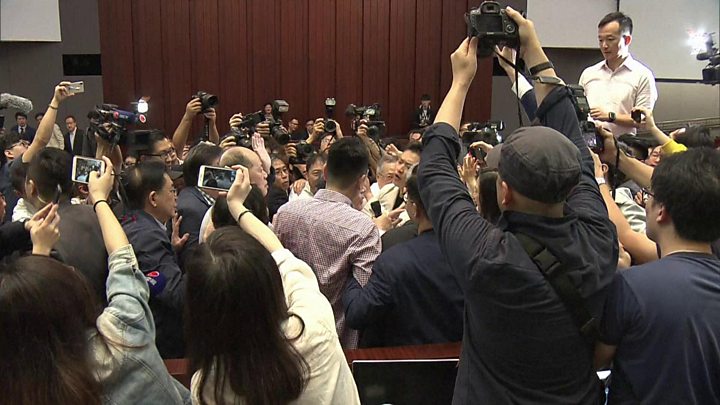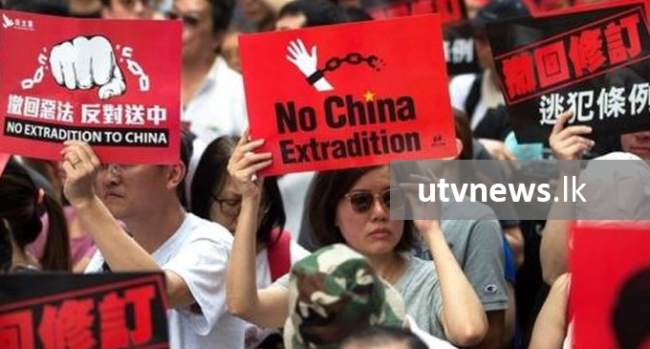(UTV|COLOMBO) – “Foreign forces” are seeking to “to hurt China by trying to create havoc in Hong Kong”, Chinese state media said after mass protests in the territory.
On Sunday, hundreds of thousands of people rallied against a proposed law critics fear could let China target political opponents in Hong Kong.
Clashes later erupted between hundreds of demonstrators and police.
The government said plans will go ahead for the second reading of the extradition bill on Wednesday.
Organisers estimate that one million people took part in the march, however police put the figure at 240,000 at its peak.
If the organisers’ estimate is confirmed as correct, it would be the largest demonstration in Hong Kong since the territory was handed over to China by the British in 1997.
What did Chinese media say?
According to the editorial in China Daily state-run newspaper, “some Hong Kong residents have been hoodwinked by the opposition camp and their foreign allies into supporting the anti-extradition campaign”.
The paper argues that “any fair-minded person” would support the “long overdue” bill meant “to plug legal loopholes and prevent Hong Kong from becoming a safe haven for criminals”.
Critics to the bill say those in the former British colony would be exposed to China’s deeply flawed justice system, and it would lead to further erosion of the city’s judicial independence.
Supporters say safeguards are in place to prevent anyone facing religious or political persecution from being extradited to mainland China.
After Sunday’s protests tapered off, violence broke out between some protesters and police. At least three officers and a journalist were injured, according to police.
Early on Monday, Police Commissioner Stephen Lo condemned the violence and said it damaged the city’s tradition of peaceful protests.
What are the proposed changes?
The proposal comes after a 19-year-old Hong Kong man allegedly murdered his 20-year-old pregnant girlfriend while they were holidaying in Taiwan together in February last year.
The man fled to Hong Kong and could not be extradited to Taiwan because no extradition treaty exists between the two.
The changes will allow for extradition requests from authorities in mainland China, Taiwan and Macau for suspects accused of criminal wrongdoing such as murder and rape.
The requests will then be decided on a case-by-case basis.
Hong Kong officials have said Hong Kong courts will have the final say over whether to grant such extradition requests, and suspects accused of political and religious crimes will not be extradited.

